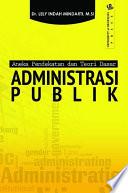
Pengantar Politik
Sebuah Telaah Empirik dan Ilmiah
Secara ilmiah, ilmu politik adalah cabang ilmu sosial yang membahas teori dan praktik politik serta gambaran dan analisis sistem dan perilaku politik. Ilmu politik mempelajari alokasi dan transfer kekuasaan dalam pembuatan keputusan, peran, dan sistem pemerintahan termasuk dalam pemerintah dan organisasi internasional, perilaku politik, dan kebijakan publik. Ilmu politik mengukur keberhasilan pemerintahan dan kebijakan khusus dengan melakukan pemeriksaan dari berbagai faktor seperti stabilitas keadilan, kesejahteraan material dan perdamaian. Kegiatan politik bukan kegiatan individu semata, melainkan aktivitas yang melibatkan banyak individu berinteraksi di dalamnya. Buku ini terdiri atas 20 bab meliputi Definisi Ilmu Politik, Pendekatan-Pendekatan dalam Ilmu Politik, Teori-Teori Politik, Memahami Negara, Demokrasi, Liberalisme, Kapitalisme, Sosialisme, Komunisme, Fasisme, Konstitusi, Sistem Pemerintahan, Lembaga Legislatif, Lembaga Eksekutif, Lembaga Yudikatif, Partai Politik, Pemilihan Umum, Sistem Politik, Komunikasi Politik, dan Hak Asasi Manusia (HAM).
- ISBN 13 : 6024447310
- ISBN 10 : 9786024447311
- Judul : Pengantar Politik
- Sub Judul : Sebuah Telaah Empirik dan Ilmiah
- Pengarang : Efriza, Jerry Indrawan, Jerry Indrawan,
- Kategori : Political Science
- Penerbit : Bumi Aksara
- Bahasa : id
- Tahun : 2021
- Halaman : 294
- Google Book : https://play.google.com/store/books/details?id=xLdTEAAAQBAJ&source=gbs_api
-
Ketersediaan :
Secara ilmiah, ilmu politik adalah cabang ilmu sosial yang membahas teori dan praktik politik serta gambaran dan analisis sistem dan perilaku politik.









